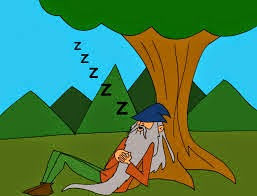The New Segregation
Fifty-four years ago, Ruby Bridges
aged 6, marched into a white New Orleans Elementary school, flanked
by US Marshals. Recently she returned to that school to assist in
unveiling a monument to her courageous 6 year old former self. Yet,
although the school, whose teachers resigned and whose students
stayed home when she first entered it, today has erected a statue in
her honor, her assessment of race relations in the US is very gloomy.
Schools are progressively more segregated, she points out, often
reflecting sharp segregation in housing.
The racial situation has changed in
the last 50 years. But the condition of the majority of Blacks in
the U.S. has not improved. As I wrote in an earlier blog, many black
students attend schools with a seriously inadequate curriculum—there
are no classes in Algebra II or Chemistry. In many of these schools
up to 60% of the teachers are not officially licensed, and a large
percentage of teachers are inexperienced because they are in their
first years of teaching.
But today's segregation of
blacks in urban ghettos with failing schools does not only have to do
with skin color but with economics: Twice as many African-Americans
and Hispanics are poor compared to Whites. Of Whites about 12% of the
population are poor; the rate of poverty for African-Americans and
Hispanics is double that.
Poverty is self-perpetuating
across the generations. Whites used to ascribe that to a mythical
“culture” of poverty, of generations of welfare recipients who
hand down from one generation to the next an inclination to be
passive, lazy, content to live on the dole.
But that was only a myth that
blamed the victims. We now know how poverty persists in the real
world. Careful studies show how white and black children enter first
grade equally ready to learn mathematical skills. But the poor
children soon fall behind. Their lives are too hard; often even their
nutrition is inadequate. Their performance in school suffers. If they
finish school at all, few of them are ready to go on to college. They
will be as poor as their parents.
Their poverty accounts at least
in part for their social isolation. White families choose schools for
their children with fewer children of color. But white families also
choose schools for their children with fewer children who are poor.
The resegregation of housing and education seems to be significantly
affected by black and Hispanic poverty. What was previously the
result of racism is today, in part, a response to serious economic
inequality.
Segregation is becoming an
economic issue.
Of course, that was always true
in some way. Old-fashioned racism was designed to hide the shame of
slavery. But segregation today responds to very different economic
facts. Foremost among those is the inability of our capitalist
economic system to create enough jobs. A close second is the
inability of this economic system to create jobs that pay a living
wage.
The official unemployment rate
in the entire country stands at 6.5. That is not counting the people
who have become discouraged after failing to find a job, often for
more than a year, and who have stopped looking. That rate is almost
twice the official unemployment rate at 12.5. The economy cannot
create jobs for a significant percentage of the population.
More than 5% of the labor force
work more than one job. One job by itself simply does not pay enough
to support a family. Only 35% of part-time workers who wanted more
hours managed to get full time work. The remainder are forced to work
less than they would like.
The result is massive poverty.
Figures differ but about 15% percent of households in the US
live in poverty as defined by the US government. Given centuries of
racism in the US, a disproportionate number of the poor are
African-American or Hispanic, Native American or Native Alaskan.
Poverty brings with it housing
and educational segregation.
We are being told, daily, that
our economic system allows everyone to make something of their life,
while, in reality, the economic system is actually to blame for much
of this poverty. It has failed 15% of us massively and more and more
of us to a lesser degree. Instead of creating jobs, capitalism in the
US first outsourced jobs elsewhere. Today that is no longer
sufficient. So capitalists now have a new project, namely to replace
human workers by robots. (The workforce in China is said to have
already been reduced by 15% due to robots replacing human workers.)
The system that creates unimaginable riches for some, creates massive
misery for one in seven households in the “richest country in the
world.”
Is it time for a change?




